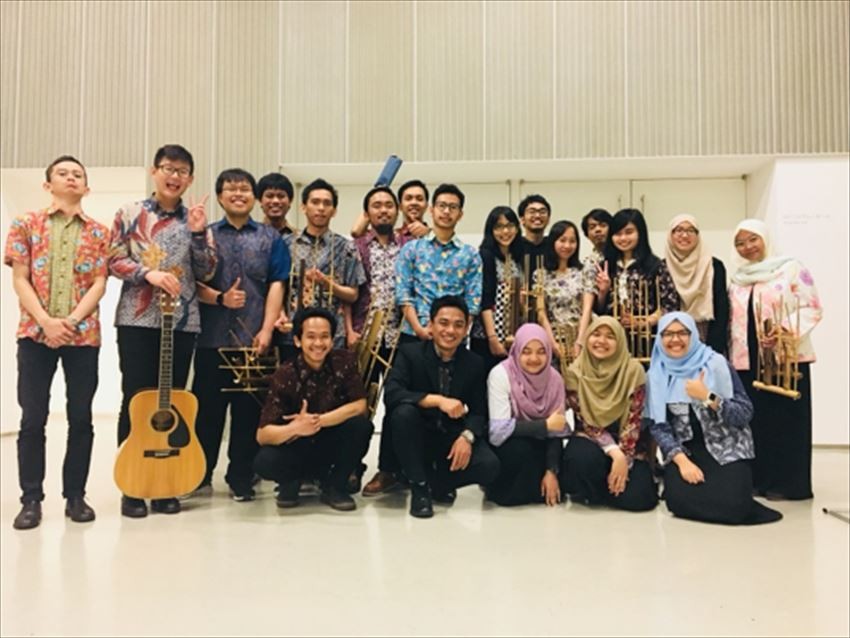
My name is Luthfan and as an undergraduate student at a national research university in Tokyo, I’m currently pursuing a degree in Information Science. If you have never heard the course before, it is more or less the same with Computer Science or Informatics but it puts slightly more consideration in studying mathematics.
Why I decided to continue with a graduate program.

As a fourth year student, the major question I had to deal with at the beginning of the school year was whether I am going to leave the academic environment and start working or to stay and pursue further education in a graduate program. However, as a student in the science department, I thought it was an obvious decision to continue with studying. Of course, there are several other important considerations, which I had to make before going forward with my decision.
The first consideration was that I love the field of study that I’m currently involved in, which is programming language. The first few months of experiencing research were one of the main reasons that I decided to apply for the graduate program. Research is clearly not meant for everyone, some people may find research to be tedious and not practical, but certainly for some other people working on a research project and trying to break the limit of knowledge is a wonderful idea.
The second consideration was that I wanted to learn more about computer science in general. Continuing to a graduate program offers me the chance to learn more about topics that were barely discussed during the undergraduate study. Certainly, you will never hurt from learning something new.
Getting into a graduate program in Japan

In recent years more international students are studying in Japan, in part because many universities are trying to be more global and open to the world. There are different kinds of admission into a Japanese university’s graduate program, they usually vary between universities and they also differ depending on the condition of the student applying.
In my case, because I’m an undergraduate student who is attending the same program as an ordinary Japanese student, I had to apply through the normal way, which is by passing a written test and an interview. The written test was mostly about the courses I took during my 2nd year as well as basic mathematics like calculus and linear algebra. The interview, on the other hand, was quite daunting. During the interview, all the professors and a few other associate professors, maybe twenty of them sat surrounding me during the interview as I answered some questions on what I wanted to study and why I wanted to over the next few years while at the university.
But getting into a graduate program in Japan doesn’t have to be as hard as that. Applying from abroad tends to be less difficult; because applicants may only need to have an interview with a professor whose research they are interested in. So, if you think you had a good record during your undergraduate studies, don’t be afraid to try applying to a graduate program in Japan. Once again, it always depends on the university and program that you’re applying to. When it comes to funding your studies in Japan, you can relax slightly because there are numerous companies and institutions providing scholarships exclusively for international students.
If you’re from outside Japan and have made up your mind to apply for a graduate program in Japan, the first thing you need to do is determine the field of research you are interested in. After that, you must find a professor who is working in that field. Once you have found the right professor, contact the professor, introduce yourself and explain your interest and intentions. If you want to enter a particular university, go research the professor through their website and see if there is anyone working in the topic that you find suits your academic needs. As I mentioned before, the evaluation is usually only based on your undergraduate result and a quick interview on the research topic.
Graduate program (Master’s degree) and living in Japan.
First of all, education in Japan is world class, so there is not much to worry about education-wise. A graduate program in Japan is probably similar with many other countries in the world; you will have to obtain a certain number of credits by taking courses related to your major, as well as some other supplementary courses. Similar to the 4th year students, graduate students will be in close contact with their academic supervisors every day.

More importantly, studying in Japan offers some elements that you will not find in many other countries. The country is clean, safe and full of wonderful cultures to experience throughout your studies. The foods are great and healthy. Most of the cities also have incredibly integrated public transportation, so the convenience of your life here in Japan is certainly guaranteed.
As an international student at a Japanese university, you can always find student organizations that will help you connect with other international and Japanese students. There is no way you’ll feel lonely as there will be the occasional party and even invitations from local organizations to international students to join and try a particular Japanese celebration or ceremony. Just a few weeks ago, I went on a tour to Ikegami Honmonji held by a local organization. There we learned about the history of the temple and tried out Japanese calligraphy in traditional clothes.
Advice for those interested in pursuing studies in Japan.
Without question, there are fewer options for people who want to pursue their undergraduate study in Japan. You can either go through the typical scholarship route, applying for scholarships such as MEXT Scholarship, or you can apply to a university that is well known for being very welcoming towards international students, like the Asia Pacific University in Kyushu. And if you are brave enough to apply normally by yourself, you need fantastic Japanese language skills to survive in the typical undergraduate program in Japan.
While for those who wish to obtain a graduate degree in Japan, unless you are taking humanities, you are not demanded to speak perfect Japanese. Of course, learning Japanese conversation skills before getting here will definitely be useful to help you integrate with other students and enjoy more your life here in Japan. You can also start looking around for scholarships for study in Japan, so you can arrive in Japan without worrying about money.

Comments